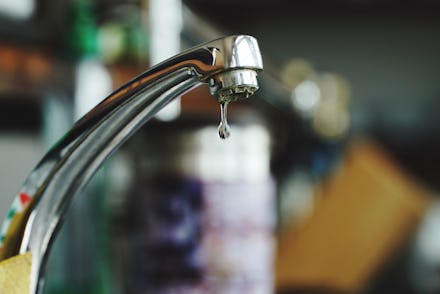Op-ed: Access to clean water matters now more than ever

Life in the United States has changed dramatically within the last two weeks. We’ve seen toilet paper shortages, the Google search term “virtual happy hour” spike, and city officials begging their residents to stay home. It’s a lot.
Bustle Digital Group's trends team has been fielding surveys among millennials and Gen Zs about issues that concern them and how they are adjusting to their new realities in self-isolation. Despite the media amplifying the narrative that younger generations don’t care about Coronavirus, we’ve found that many are desperate to help those who need it most right now. In our survey fielded among people in the U.S. ages 14 to 44 powered by Pollfish last week, 78% of respondents said they feel that private citizens have a responsibility to help the greater good during the coronavirus pandemic.
March 22 was World Water Day, and much of the press surrounding it highlighted that 2 million Americans currently do not have access to running water. These individuals are the most vulnerable to coronavirus because they cannot regularly wash their hands (let alone at the frequency health experts asking us to) or rely on the comfort of readily available drinking, cleaning, or cooking water in their homes.
And this demographic isn’t getting ignored. When asked about which groups they were most concerned about, 56% percent of 18- to 44-year-olds we surveyed said, specifically, people without access to running water.
Who currently lacks access to running water? In America, one of these groups are Native American communities living on reservations. According to the CDC, Native Americans already have higher death rates from asthma and tuberculosis, and mortality rates to deadly viruses are unfortunately no better as seen with H1N1 in 2009. Indigenous people in the continental US and in Alaska saw rates 4x higher than all other racial and ethnic groups combined during that crisis.
As coronavirus creeps onto reservations, Native Americans are relying on the Indian Health Service (IHS), the Federal Health Program for American Indians and Alaska Natives, to keep them healthy. The problem is, the IHS is chronically underfunded and understaffed, resulting in terrifying lapses in care. IHS’s average vacancy rate for physicians, nurses, and other care providers is 25%.
Aside from social distancing, there is more we can do to alleviate this disparity. Right now DigDeep’s Navajo Water Project is entirely focused on continuing uninterrupted service (i.e.: water deliveries) to the residents of Navajo Nation they already support. By donating, we can help more than 30 Navajo families regularly wash their hands this year. This action may seem small, but it has a much larger impact. Having water at home allows people to practice social distancing and wash their hands, lessening their chance of needing medical assistance (which is already scarce).
When asked what societal changes they hope will come about in the US after the pandemic is over, nearly 1 in 3 of the young people surveyed said “that everyone will wash their hands more.” But in order for that to happen, people first need access to water at home. Stay home. Donate to causes if you can. Be kind to each other. And wash your damn hands.